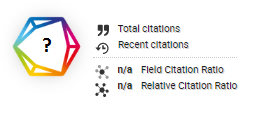THE USE OF DIGITAL STORYTELLING TOWARDS STUDENTS’ COMPETENCY IN WRITING TEXT
DOI:
https://doi.org/10.46984/sebatik.v22i2.333Keywords:
Digital Storytelling, Writing Skill, Descriptive TextAbstract
The main objective of this research is to prove whether the digital storytelling enhances and improve students writing competency. The study uses classroom action research (CAR). The data in this study are quantitative and qualitative data. The quantitative data will be collected by using the essay test. The qualitative data will be collected by using observation, field notes, and questionnaire. The score of students’ writing descriptive text kept increasing from pre-test until post-test. It was proved by the data which showed that the mean of the students’ score in post-test II is 86.6 (92.75%) was higher than the post-test I is 72.2 (68.75%), and also higher than the pre-test 54.8 (25%). The response of student in using digital storytelling in the agree category, it can be seen from the 15 students who passed the KKM (70) and 1 student still low of KKM. The class percentages of post-test II show improvements from the previous test; the improvement is 67.75%. The frequencies of item agree appear 110 times or (52.88%). Furthermore, it can be concluded that Digital Storytelling is effective and useful to be used in teaching writing skill, especially in Descriptive Text.
References
Burns, A. 2010. Doing Action Research in English Language Teaching. New York: Routledge Taylor and Francis Group.
Franzen, A.M., & Allington, R.L. 2010. Handbook of Research on Reading Disabilities. New York: Routledge Taylor Francis and Group.
Mather, et. al. 2009. Writing Assessment and Instruction for Students with Learning Disabilities. San Fransisco: Jossey-Bass.
Ohler, J. 2008. Digital Storytelling in the Classroom: New Media Pathways to Literacy, Learning, and Creativity. California: Corwin Press.
Peacock, et. al. 2012. Practical Handbook of School Psychology: Effective Practices for the 21st Century. New York: The Guildford Press.
Prierangelo, R., & Giuliani, G. 2006. Teaching Students with Learning Disabilities: A Step by Step Guide for Educators. California: Corwin Press.
Tarigan, K. E., & Liana, L. 2018. Improving Students' Writing Descriptive Text Through Digital Storytelling Technique. Budapest International Research and Critics Institute (BIRCI-Journal): Humanities and Social Sciences, 1(3), 345-351.
Xie, A., & Huang, X. 2012. Advances in Computer Science and Education. New York: Springer.
Downloads
Published
How to Cite
Issue
Section
License
Authors retain all their rights to the published works, such as (but not limited to) the following rights; Copyright and other proprietary rights relating to the article, such as patent rights, The right to use the substance of the article in own future works, including lectures and books, The right to reproduce the article for own purposes, The right to self-archive the article









